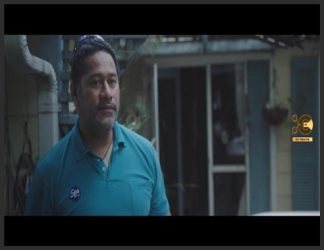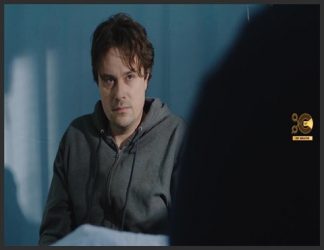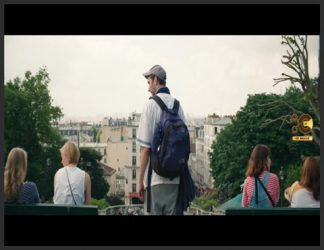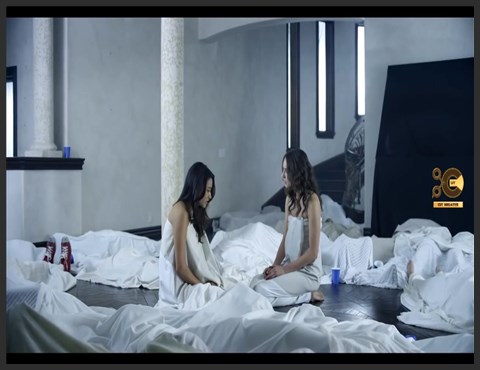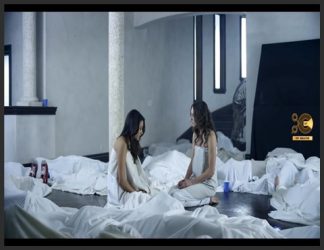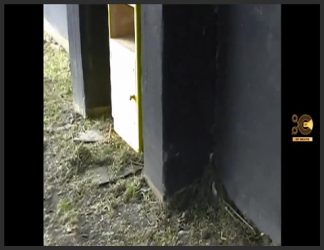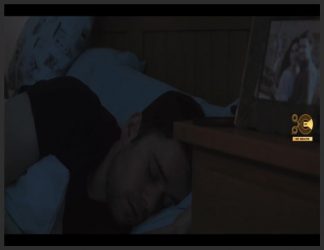You must need to login..!
توضیح
فیلم کوتاه خارجی Cigarettes & Coffee (سیگار و قهوه)
برای دانلود رایگان فیلم کوتاه خارجی Cigarettes & Coffee (سیگار و قهوه) با کیفیت 720p از پلیر سایت یا لینک زیر استفاده کنین
برگزیدگان برلین
برگزیدگان جشنواره های بین المللی
نامزد دریافت جایزه از European Film Awards 2004
برنده جایزه از Berlin International Film Festival 2004 , Anonimul International Independent Film Festival 2004
جشنواره بین المللی مستقل آنونیمول 2004
جشنواره بین المللی فیلم برلین 2004
جوایز فیلم اروپایی 2004
ژانر:درام
سال ساخت : 2004
مدت پخش : 13:07
زبان فیلم : رومانیایی
ساخت کشور رومانی
کارگردان: Cristi Puiu
بازیگران: Mimi Branescu, Mihai Bratila, Victor Rebengiuc
سیگار و قهوه از نخستین فیلمهای رومانیایی است که به عنوان برنده جایزه خرس طلای بهترین فیلم کوتاه کوتاه در برلین در سال 2004 به رسمیت شناخته شده است. این فیلم ها به همراه Stuff and Dough (2001) و مورد تحسین فراوان مرگ آقای Lăzărescu (2005) ، کریستی پویو را به عنوان کارگردان برجسته سینمای ملی نوظهور تأسیس کردند. آنچه منتقدین آن را موج جدید رومانی خوانده اند ، مجموعه ای از فیلم های کارگردانان جوان است که در زمان کمونیسم رشد کرده و پیشگویی را با میراث رابطه ای ، عاطفی و نهادی رژیم سابق به نمایش می گذارند. آنها از یک سبک مشاهده مینیمالیستی استفاده می کنند – عکس های بلند ، نور طبیعی ، عدم وجود صدای غیرقانونی – برای دور زدن آرمان ها که یادآور رئالیسم سوسیالیستی است و با هوشیاری غیر سازشگرانه جزئیات موجود در روابط و نهادها را کشف می کنند.
Cigarettes and Coffee is one of the first Romanian films to have received international recognition, as the 2004 winner of the Golden Bear for Best Short Film in Berlin. Along with Stuff and Dough (2001) and the widely acclaimed The Death of Mr. Lăzărescu (2005), these films established Cristi Puiu as a leading director of an emerging national cinema. What critics have called the Romanian New Wave are a series of films by young directors who grew up during communism and dramatize a preoccupation with the former regime’s relational, emotional, and institutional legacies. They use a minimalist observational style – long shots, natural lighting, absence of non-diegetic sound – to circumvent idealizations reminiscent of socialist realism and to explore with uncompromising sobriety the details that make up relations and institutions.
Puiu’s short condenses this new sensibility in only fifteen minutes that stage a meeting between a father and son. From the very beginning, their gestures establish the two as very different inhabitants of the post-communist world. The elderly working class father, Mr. Tomescu (played by Victor Rebengiuc), walks hesitantly and talks continuously to cover his unease in the middle-class restaurant where his son, Vlad (played by Mimi Brănescu), has chosen to meet. Vlad is curt and aloof, sure in his demand for services from the waiter and for succinctness from his father. The apparent reason for their meeting is revealed by one of Vlad’s interruptions: Mr. Tomescu needs to find a workplace for two more years, after being laid off from his thirty-plus-years communist job, so that he can retire with full benefits. The son may be able to help him by asking the right people.
The “coffee and cigarettes” which Mr. Tomescu has brought are the inducement his son will use to try secure the job. These objects, and the corresponding stock phrase captured by the film’s title, reference a communist-era custom of ‘gifting’ such ‘incentives’ to a state employee so as to pave the way for a favor. Bribe was a function of an economic and political system in ruin, which survived on the back of a subterranean economy of informal exchanges.1 Today, the cigarettes and coffee have lost their value of rare black-market luxury items, but they still fulfill important social functions that have been codified under communism. In offering them, the giver hails the receiver as powerful in their ability to grant and withhold favors. The giver also marks themselves as a worthy interlocutor – who knows “the rules of the game” by having chosen the right or tasteful cultural objects2 – and trustworthy in the relationship of indebtedness that the gift initiates.
In a neoliberal society where the state shrunk its support even more than it had during the last years of communism, where people are left to rely on families to supplement their economic precarity (like Mr. Tomescu) or on carefully crafted interpersonal relations to bolster a volatile security (as in Vlad’s case), knowing these codes is a vital skill. The depths and consequences of this ritual, understood by its participants in terms of “politeness,” are explored by other films of the Romanian New Wave. In Puiu’s Lăzărescu for example, doctors interpret the protagonist as offensive and, thus, undeserving of their medical care, because he fails to affirm the social hierarchy by acting entitled to the public health system instead of trying to offer “an incentive.” Director Cristian Mungiu also dramatizes performances of corruption when, in 4 Months, 3 Weeks, and 2 Days (2007), an abortionist frames his sexual abuse of two college women in search for an illegal abortion as a ‘polite’ informal transaction; in Mungiu’s more recent Graduation (2016), the internalization of this ritual reaches the absurd when the wife of a patient insists on giving the doctor money under the table out of a sense of courtesy, even if her husband did not survive the surgery.
Puiu’s film points to the complex continuity between past and present, subtly illuminating how neoliberalism is turning the younger generation into more skilled students of power networks than their parents had to be under dictatorship. But this grim chronicle of generational changes finds respite in the robust bonds of care that run in this family. Mr. Tomescu appears as an affectionate husband who has been caring for his ill wife patiently. Puiu also packs a lot of kindness in the seemingly cold interaction between father and son. While Vlad is blunt and too controlling interpersonally, he is nevertheless very caring. He is surprisingly non-judgmental when it transpires that his father wants a job not only for the pension benefits, but because he needs to feel useful in ways the communist economy made him feel, and to take a break from caring for his bedridden wife. Vlad understands Mr. Tomescu’s emotional needs as well as the efforts they entail from other family members (in particular, hiring a caretaker for his mother). But he does not try to change his father’s mind realizing Mr. Tomescu may usually not ask for much in his otherwise very modest life.
Love is an important subject for Puiu. The director had set out to explore it in a series of features he titled “Six Stories from the Outskirts of Bucharest,” and so far has chronicled only its absence in the face of indifference and alienation. Cigarettes and Coffee, thus, comes off as Puiu’s most trustful film. The post-communist world he paints is one where kindness and care can survive in strained family relations and during austere times that have relegated the younger generation to demanding exercises in resourcefulness.




